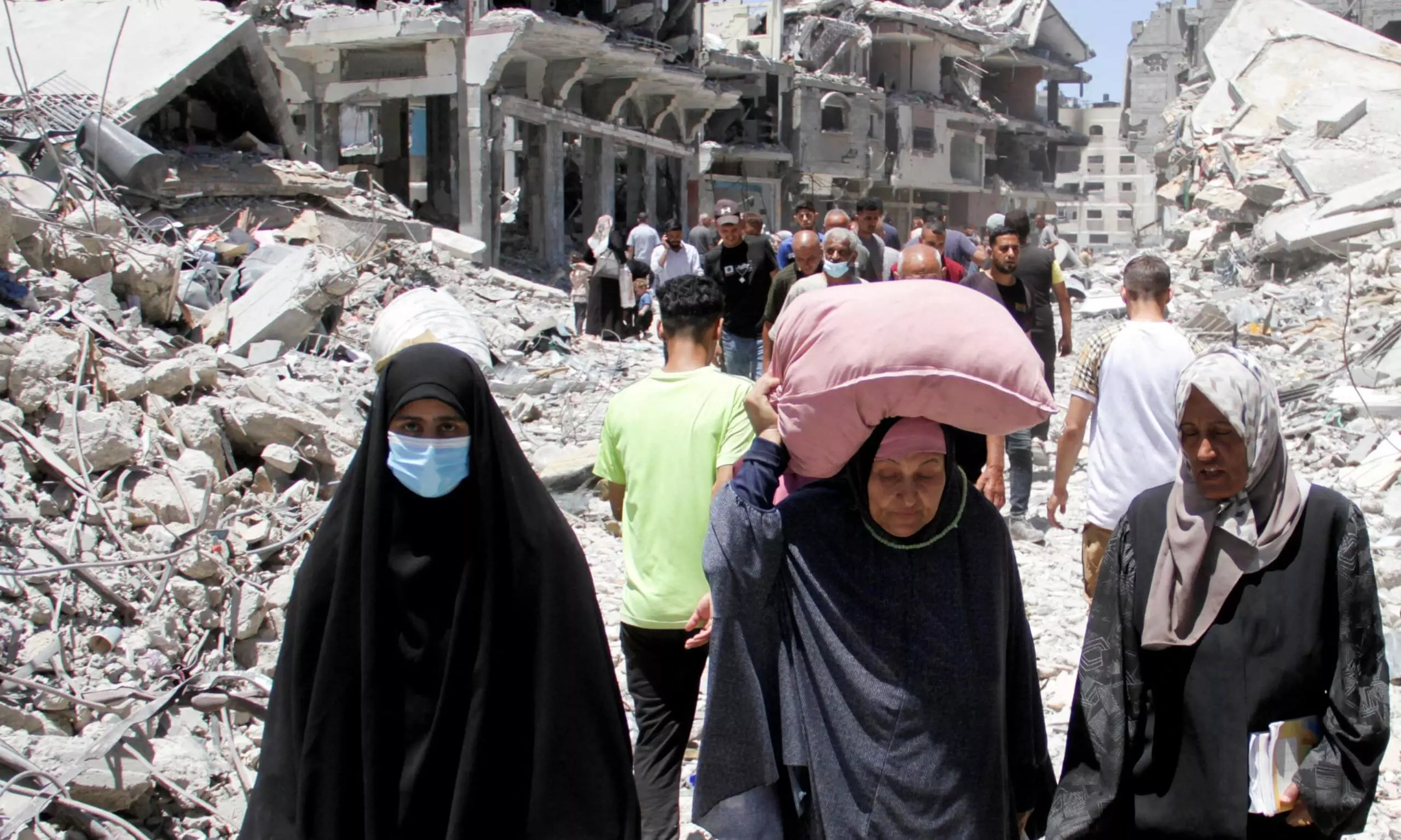
UN and global leaders condemn Israel’s ban on UN relief for Palestinian refugees
text_fieldsIsrael’s recent legislative move to designate the United Nations Relief and Works Agency for Palestine Refugees in the Near East (UNRWA) as a “terror” group and prohibit its activities within Israeli territories has sparked an intense wave of international backlash.
The legislation, approved by the Knesset on Monday, could lead to an end to UNRWA's humanitarian operations in Gaza, the West Bank, and East Jerusalem, igniting condemnation from global leaders, humanitarian organisations, and United Nations officials.
The legislation stipulates that UNRWA would be barred from conducting activities or providing aid within Israeli borders, including areas under Israeli occupation, such as East Jerusalem. The consequences of this ban would significantly hinder the agency's ability to deliver essential aid to Palestinians in dire need.
Founded by the United Nations General Assembly in 1949, UNRWA was established to address the humanitarian needs of Palestinians displaced during the establishment of Israel. Since then, the agency has grown into the primary source of educational, healthcare, and other essential services for millions of Palestinian refugees in the Gaza Strip, West Bank, Lebanon, Jordan, and Syria.
The Palestinian leadership, together with political factions including Hamas and the Palestinian Islamic Jihad (PIJ), denounced the legislation, describing it as part of an aggressive strategy against the Palestinian people.
The Palestinian presidency characterised the legislative move as a reflection of a far-reaching policy change in Israel, which, according to its leaders, is increasingly isolating itself on the global stage. Meanwhile, leaders from Hamas and PIJ claimed that the law escalates what they view as systemic violence against Palestinians.
United Nations Secretary-General Antonio Guterres also expressed concern, pointing out that UNRWA provides critical support that no other organisation could replace, particularly in Gaza, where the humanitarian crisis has been exacerbated by ongoing conflicts and blockades. Guterres also stressed that this decision conflicts with Israel’s international obligations as per the UN Charter, underscoring that no national legislation should override these commitments.
In the next 90 days, as the law is set to take effect, UNRWA is likely to face significant operational disruptions. With its East Jerusalem headquarters expected to close, the agency’s capacity to deliver aid in Gaza through the Rafah border crossing would be severely impacted. Diplomatic ties between Israel and UNRWA are anticipated to weaken, complicating the agency's ability to secure necessary permits for personnel and essential supplies.
British Prime Minister Keir Starmer expressed grave concerns, emphasising that the legislation could make it impossible for UNRWA to continue its vital work for Palestinians, which includes health and education services in the West Bank and Gaza. His Foreign Secretary, David Lammy, indicated that potential sanctions might be considered if UNRWA’s operations were severely curtailed.
Germany’s human rights commissioner, Luise Amtsberg, echoed these warnings, noting that the legislation would disrupt the humanitarian response infrastructure essential for millions of Palestinians.
Australia’s Foreign Minister Penny Wong affirmed her country’s opposition, calling for Israel to abide by international rulings to ensure the continued provision of basic services in Gaza.
In a joint statement, the governments of Spain, Slovenia, Ireland, and Norway condemned Israel’s actions, warning that it could set a concerning precedent for multilateral institutions like the United Nations. Meanwhile, Belgium and Switzerland also voiced regret, with Belgium underscoring the critical role of UNRWA in maintaining regional stability and Switzerland highlighting the potential humanitarian implications of the law.
In the United States, State Department spokesperson Matthew Miller acknowledged the administration’s concern, noting the “irreplaceable” role UNRWA plays in Gaza, especially in light of the current crisis. US legislation generally restricts military aid to countries that impede US-backed humanitarian initiatives, though this provision is seldom enforced. In light of the recent US withdrawal of funding from UNRWA following Israel’s accusations against UNRWA staff, some critics are questioning the US stance on these restrictions.
Jordan's Ministry of Foreign Affairs condemned the legislation as a breach of international law, warning of “catastrophic consequences” should Israel proceed with its plan.
Lebanese officials noted that the legislation adds tension to an already volatile situation, particularly following recent conflicts along the Israel-Lebanon border involving Hezbollah. China and Russia likewise condemned the law, with Chinese UN envoy Fu Cong labelling the decision as “outrageous” and Russia’s ambassador to the UN, Vasily Nebenzia, urging Israel’s ally, the United States, to demonstrate its commitment to UNRWA through continued funding.
Amid this international response, major humanitarian organisations, including Oxfam and ActionAid, expressed fears for Gaza's vulnerable population, warning that the removal of UNRWA’s support could lead to severe shortages of essential supplies, including food, water, and medical care.
In Gaza, where many residents face high levels of displacement, poverty, and limited access to essential resources, UNRWA has long been a lifeline, especially for vulnerable groups like children and the elderly. Aid groups highlighted that public health crises could worsen without the agency’s vaccination programmes and healthcare provisions.























